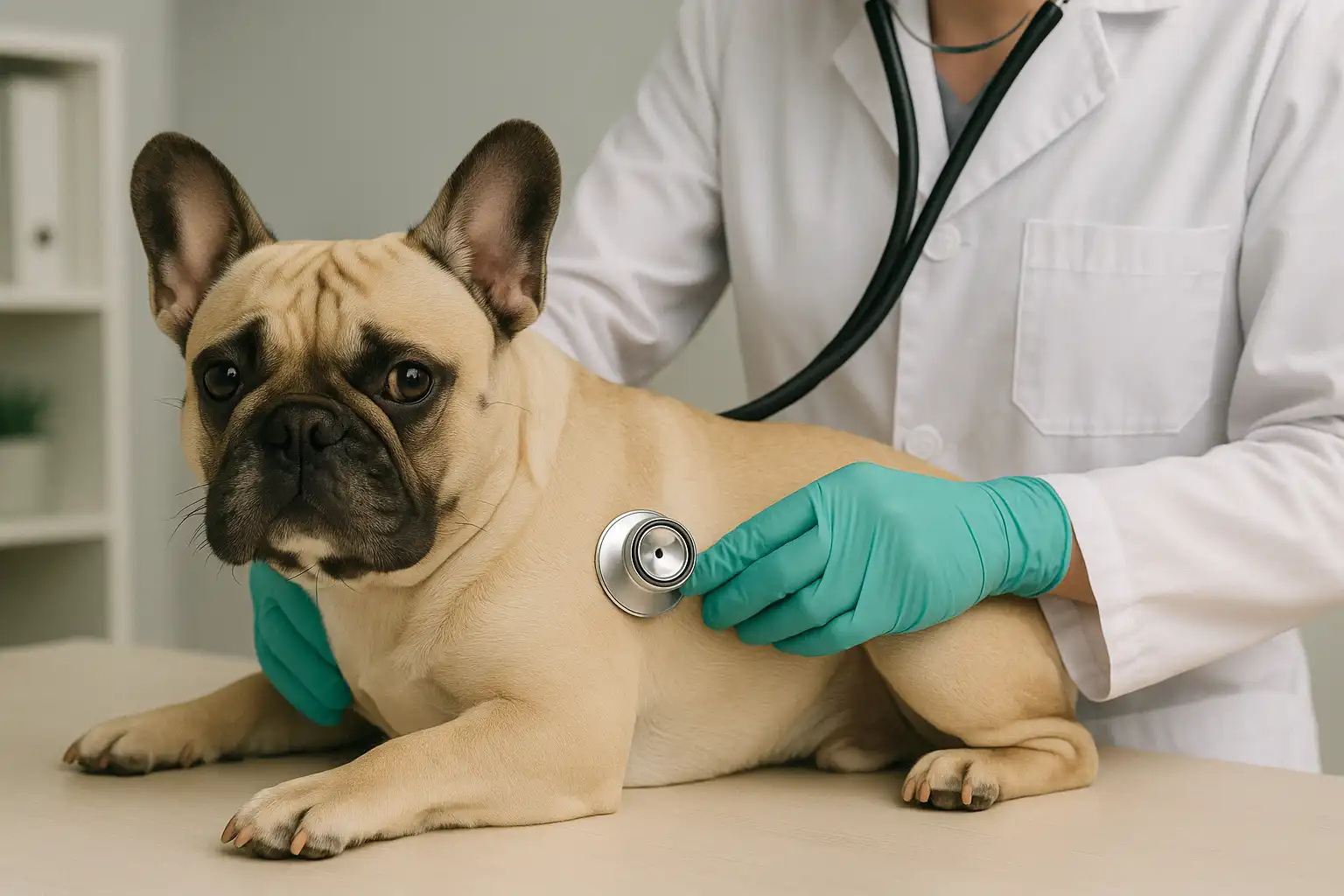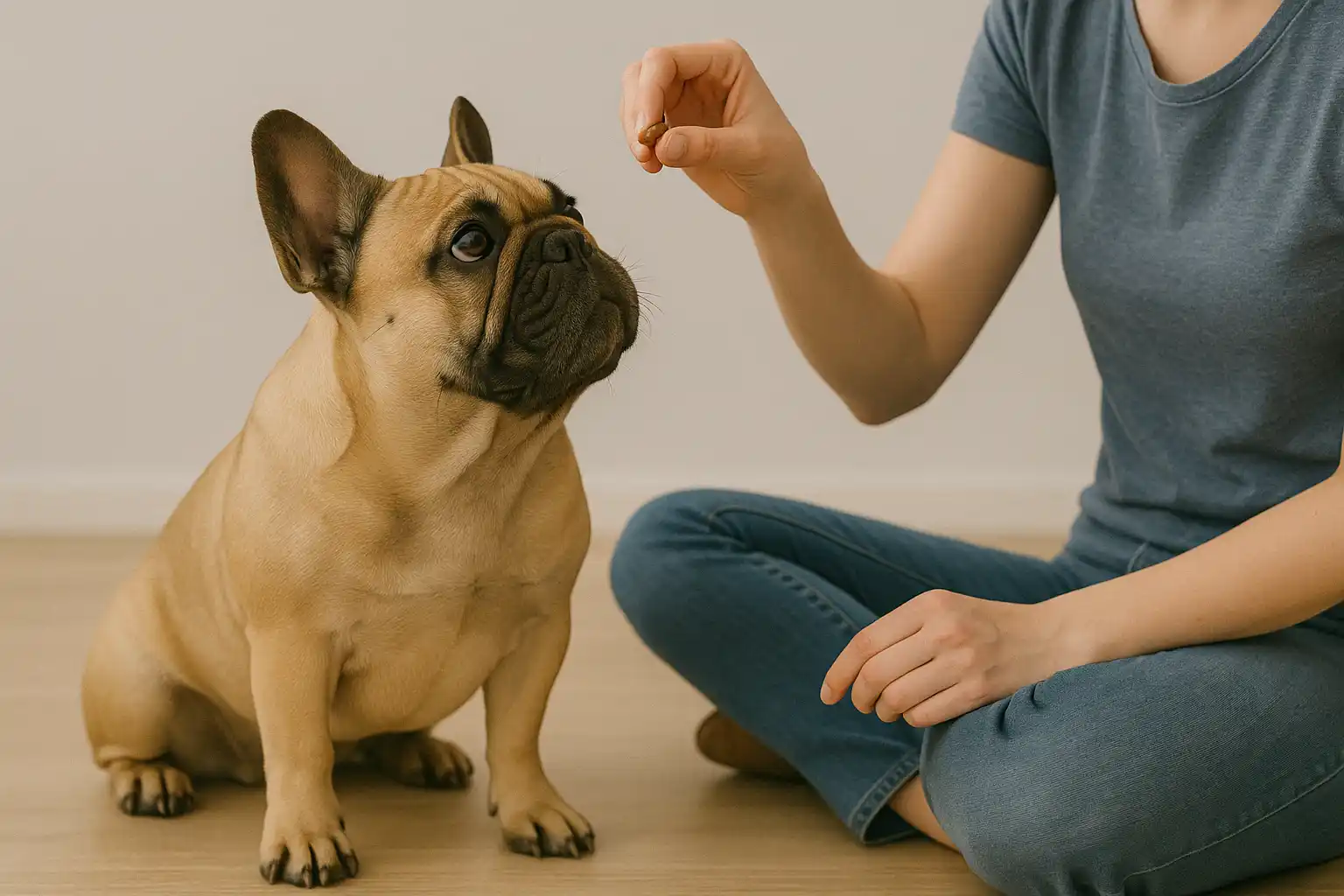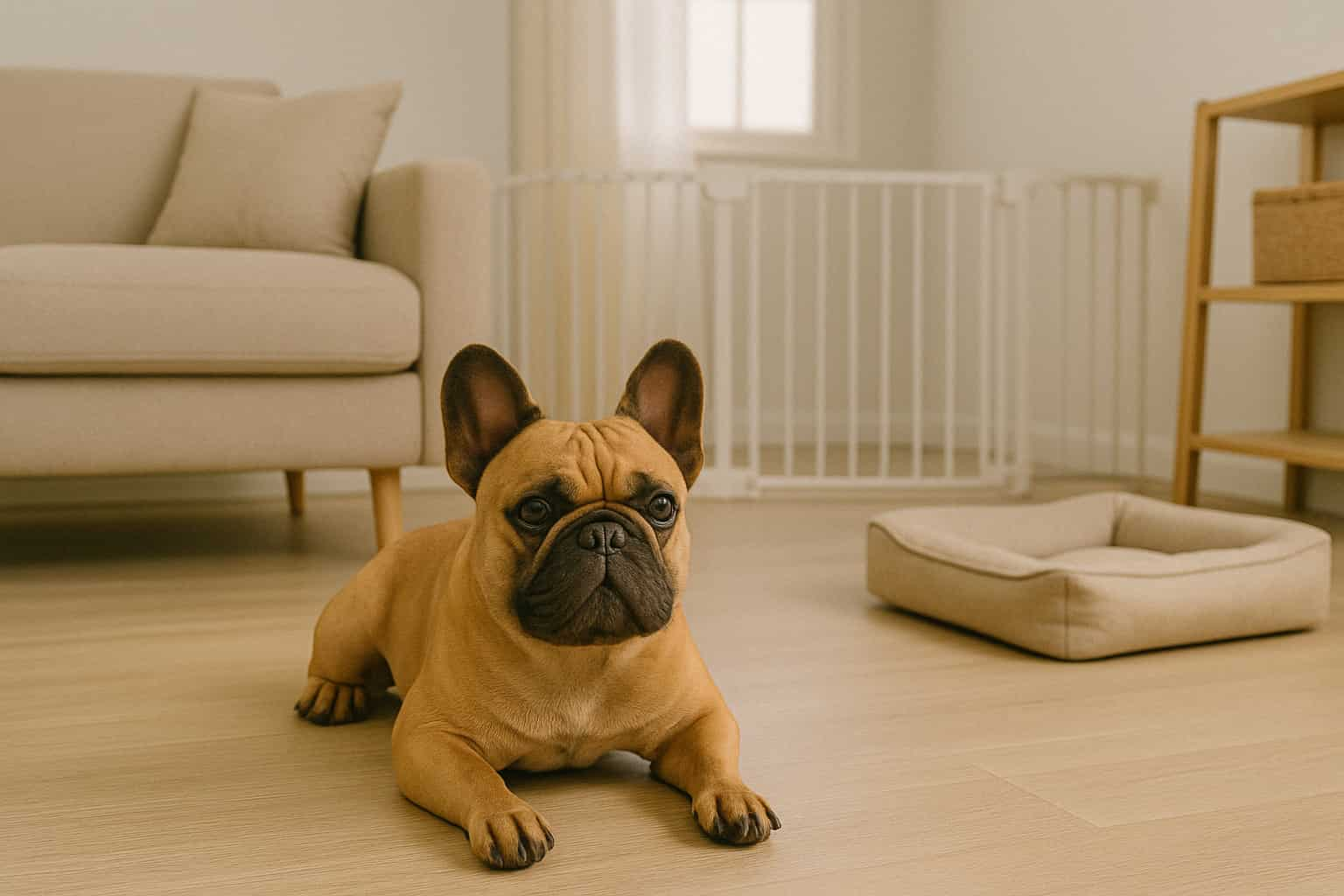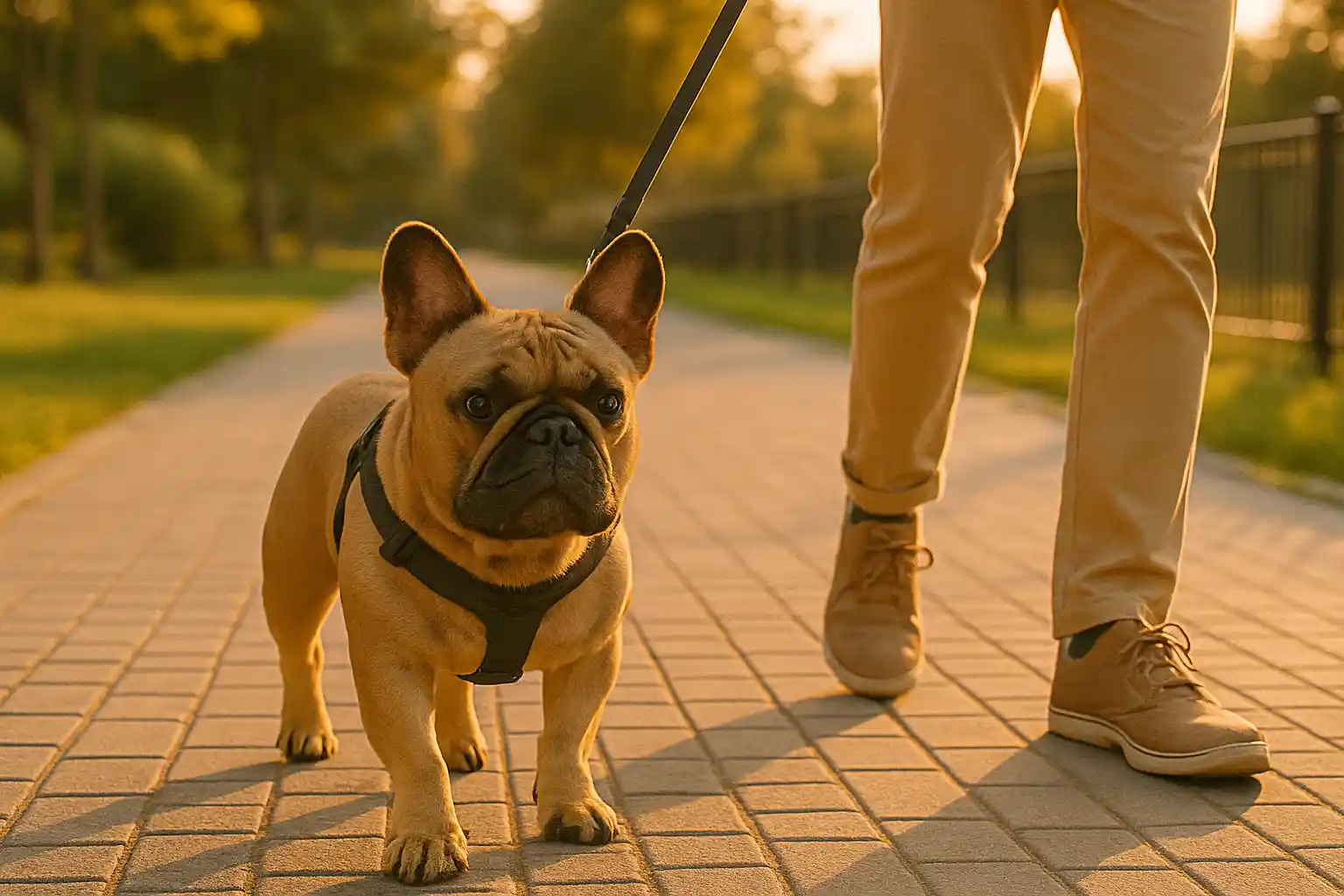Learning how to take care of a French Bulldog properly is essential for ensuring your Frenchie lives a happy, healthy life. These charismatic dogs have specific care requirements due to their unique physical characteristics and temperament. This comprehensive guide covers everything from health considerations and dietary needs to grooming, training, and creating the perfect environment for your French Bulldog.
As a veterinarian specializing in brachycephalic breeds for over 15 years, I’ve helped countless French Bulldog owners navigate the joys and challenges of caring for these beloved companions. While Frenchies are undeniably charming with their bat-like ears and squished faces, they require specialized care that differs from many other breeds. Understanding how to take care of a French Bulldog properly will help you avoid common health issues and ensure your furry friend thrives.
In this in-depth guide, you’ll discover expert advice on French Bulldog nutrition, exercise requirements, grooming needs, training approaches, and health maintenance. Whether you’re a first-time Frenchie owner or looking to improve your existing care routine, these evidence-based recommendations will help you provide the best possible care for your French Bulldog companion.
Understanding French Bulldog Needs
Before diving into specific care instructions, it’s crucial to understand the distinctive needs of French Bulldogs. Learning how to take care of a French Bulldog begins with recognizing their unique physical characteristics and the health considerations that come with them.
Common Health Issues in French Bulldogs
French Bulldogs are prone to several health conditions that owners should monitor:
- Brachycephalic Obstructive Airway Syndrome (BOAS): Their characteristic flat faces can cause breathing difficulties, especially in hot weather or during exercise. Signs include noisy breathing, snorting, and in severe cases, collapse.
- Spinal Issues: French Bulldogs have a high incidence of intervertebral disc disease (IVDD) and other spinal problems due to their body structure. Watch for signs of pain, reluctance to jump, or abnormal gait.
- Heat Sensitivity: Due to their breathing challenges, Frenchies struggle to regulate body temperature efficiently and are extremely vulnerable to heat stroke. This is why knowing how to take care of a French Bulldog in warm weather is particularly important.
- Skin Conditions: The wrinkles and folds in their skin can harbor bacteria and yeast if not kept clean and dry. Allergies are also common in the breed.
- Eye Problems: Their prominent eyes are susceptible to injuries, cherry eye, corneal ulcers, and other conditions.
- Joint Issues: Hip dysplasia and patellar luxation can occur in French Bulldogs, leading to mobility problems and pain.
Understanding these predispositions is essential for proactive care. Many French Bulldog owners work closely with veterinarians who specialize in brachycephalic breeds to develop customized preventative care plans.

Dietary Requirements for French Bulldogs
Proper nutrition is a cornerstone of how to take care of a French Bulldog effectively:
- Caloric Needs: French Bulldogs typically require 20-30 calories per pound of body weight daily, depending on their activity level, age, and metabolism. Overfeeding is a common problem that can lead to obesity, which exacerbates breathing difficulties.
- Protein Requirements: High-quality protein sources should make up approximately 18-25% of an adult French Bulldog’s diet.
- Fat Content: Moderate fat content (around 5-8%) provides necessary energy without contributing to weight gain.
- Food Selection: Many Frenchie owners opt for specially formulated foods for brachycephalic breeds or foods designed for small breeds with moderate energy needs.
- Feeding Schedule: Most adult French Bulldogs do well with two measured meals per day rather than free-feeding, which helps prevent overeating.
- Treat Moderation: Treats should constitute no more than 10% of daily caloric intake to maintain healthy weight.
- Special Considerations: Some French Bulldogs benefit from easy-to-digest foods due to their sensitive digestive systems. Foods containing prebiotics and probiotics can support gut health.
I often recommend elevated feeding stations for French Bulldogs as they can help reduce the amount of air swallowed during eating, potentially decreasing gas and improving comfort. For specific nutritional guidance tailored to your Frenchie’s unique needs, consult with a veterinary nutritionist.
Exercise Needs of French Bulldogs
Understanding how to take care of a French Bulldog includes providing appropriate exercise while respecting their physical limitations:
- Daily Exercise Requirements: Most French Bulldogs need 20-30 minutes of exercise daily, divided into shorter sessions rather than one extended period.
- Activity Types: Gentle walks, moderate play sessions, and mental stimulation exercises are ideal. Avoid high-intensity activities that could cause breathing distress.
- Weather Considerations: Exercise should be limited during hot or humid weather. Early morning or evening walks when temperatures are cooler are preferable.
- Signs of Overexertion: Heavy panting, excessive drooling, blue-tinged gums, or reluctance to continue are warning signs that your Frenchie needs to rest and cool down immediately.
- Indoor Exercise Options: Puzzle toys, short training sessions, and gentle indoor games provide physical and mental stimulation on days when outdoor exercise isn’t feasible.
- Swimming Caution: While some Frenchies enjoy water, never leave them unattended near pools or bodies of water. Their top-heavy build makes swimming difficult, and they can tire quickly.
One of my clients created a “sensory garden” in a shaded area of their yard specifically for their French Bulldog, featuring different textures to walk on, safe plants to sniff, and shallow water features for cooling off. This provides enrichment while minimizing exertion in hot weather.
Grooming Practices for French Bulldogs
Proper grooming is an essential aspect of how to take care of a French Bulldog, helping prevent skin issues while keeping your pet comfortable and healthy.
Bathing Techniques for French Bulldogs
Bathing your French Bulldog requires special attention to their unique skin needs:
- Frequency: Most French Bulldogs benefit from bathing every 4-6 weeks. Overbathing can strip natural oils and lead to dry, irritated skin.
- Water Temperature: Use lukewarm water to prevent shocking your dog’s system or causing discomfort.
- Shampoo Selection: Choose gentle, dog-specific shampoos formulated for sensitive skin. Hypoallergenic and oatmeal-based products work well for many Frenchies.
- Special Attention Areas: Pay particular attention to facial wrinkles, tail pockets, and any skin folds where moisture and debris can accumulate.
- Drying Process: Thoroughly dry your French Bulldog after bathing, especially in skin folds where moisture can lead to bacterial or yeast infections. Use a soft towel or a low-heat setting on a blow dryer kept at a safe distance.
- Post-Bath Skin Care: Apply a dog-safe moisturizer to dry areas if recommended by your veterinarian.
For Frenchies with particularly sensitive skin, I recommend conducting a patch test with any new bathing products before full application.

Brushing and Coat Care for French Bulldogs
While French Bulldogs have relatively low-maintenance coats, regular brushing offers several benefits:
- Brushing Frequency: A brief brushing session 2-3 times weekly helps remove loose fur and distributes skin oils.
- Brush Types: Soft-bristled brushes, rubber grooming mitts, or grooming gloves work well for French Bulldogs’ short coats.
- Shedding Periods: During seasonal shedding, increase brushing to daily to manage loose fur and minimize household hair.
- Coat Supplements: Omega-3 fatty acid supplements can improve coat health when recommended by your veterinarian.
- Skin Inspection: Regular brushing provides an opportunity to check for skin issues, parasites, or unusual lumps and bumps.
- Natural Coat Shine: Wiping your Frenchie’s coat with a microfiber cloth after brushing can enhance natural shine.
One effective technique I recommend is brushing in a circular motion, which helps lift dead hair while stimulating blood circulation to the skin.
Nail Trimming and Ear Cleaning for French Bulldogs
These often-overlooked aspects of grooming are crucial to how to take care of a French Bulldog properly:
- Nail Trimming Frequency: Most French Bulldogs need nail trims every 3-4 weeks. Clicking sounds on hard floors indicate nails have grown too long.
- Trimming Techniques: Use a proper dog nail trimmer or grinder, being careful to avoid the quick (the pink area within the nail that contains blood vessels and nerves).
- Ear Cleaning Schedule: Check ears weekly and clean gently as needed, typically every 2-4 weeks for most Frenchies.
- Ear Cleaning Method: Use a veterinarian-approved ear cleaner applied to a cotton ball (never a cotton swab). Gently wipe the visible parts of the ear canal without probing deeply.
- Signs of Ear Problems: Redness, unusual odor, excessive wax, or head shaking warrant veterinary attention.
- Dental Care: While not strictly grooming, dental hygiene should be part of your routine. Daily tooth brushing with dog-specific toothpaste helps prevent periodontal disease, which is common in the breed.
For owners who find nail trimming challenging, I suggest gradually acclimating your French Bulldog to having their paws handled from a young age. Short, positive sessions with plenty of rewards can make this necessary task less stressful for both you and your pet.
Training and Socialization for French Bulldogs
Effective training and proper socialization are vital components of how to take care of a French Bulldog, helping them become well-adjusted, happy companions.
Basic Commands and Obedience Training for French Bulldogs
Training your French Bulldog requires understanding their unique personality and learning style:
- Intelligence and Motivation: French Bulldogs are intelligent but can be stubborn. They respond best to training that feels like play and involves food motivation.
- Training Timeline: Begin training as early as 8 weeks of age with simple commands like “sit,” “stay,” and “come.” Keep sessions short (5-10 minutes) and positive.
- Reward-Based Methods: Positive reinforcement techniques work best with Frenchies. Use high-value treats, praise, and play rather than punishment-based methods.
- Consistency: Ensure all family members use the same commands and reward systems to avoid confusing your dog.
- House Training Challenges: French Bulldogs can be challenging to house train. Establish a strict schedule, reward successes generously, and never punish accidents.
- Crate Training Benefits: Many French Bulldogs respond well to crate training, which provides them with a safe space and assists with house training.
- Training Frequency: Several short training sessions throughout the day are more effective than one long session.
I’ve found that incorporating training into daily routines works particularly well with French Bulldogs. For example, asking for a “sit” before meals, a “wait” at doors, and a “leave it” during walks creates consistent practice opportunities without formal training sessions.

Socialization Tips for French Bulldogs
Proper socialization helps prevent behavioral issues and ensures your French Bulldog becomes a confident, well-adjusted adult:
- Critical Period: The most crucial socialization window is between 3-14 weeks of age, but socialization should continue throughout your dog’s life.
- Exposure Checklist: Aim to introduce your Frenchie to a variety of people (different ages, genders, appearances), animals, environments, surfaces, sounds, and situations.
- Puppy Classes: Enrolling in a puppy socialization class provides structured exposure to other dogs in a controlled environment.
- Positive Associations: Pair new experiences with treats, praise, and play to create positive associations.
- Body Language Awareness: Learn to recognize signs of stress or fear in your French Bulldog so you can intervene before they become overwhelmed.
- Handling Exercises: Regular, gentle handling of ears, paws, mouth, and body helps prepare your Frenchie for veterinary exams and grooming procedures.
- Controlled Introductions: When introducing your French Bulldog to new dogs, choose calm, well-socialized animals and maintain control of the interaction.
Understanding how to take care of a French Bulldog includes recognizing their social needs while respecting their physical limitations. While socialization is important, avoid forced interactions or overwhelming situations that could create negative associations.
Dealing with Behavioral Issues in French Bulldogs
Addressing common behavioral challenges is an important aspect of how to take care of a French Bulldog:
- Separation Anxiety: French Bulldogs often form strong bonds with their owners and may struggle when left alone. Gradual desensitization to your departure, engaging toys, and establishing a consistent routine can help manage this issue.
- Resource Guarding: Some Frenchies may guard food, toys, or favorite sleeping spots. Early intervention with positive reinforcement training can help prevent this behavior from escalating.
- Excessive Barking: While not as vocal as some breeds, French Bulldogs may bark to communicate needs or due to boredom. Identifying and addressing the underlying cause is key to managing this behavior.
- Stubbornness: The breed’s independent nature can sometimes be mistaken for stubbornness. Finding the right motivation (usually high-value treats) and making training engaging can overcome this challenge.
- Chewing and Destructive Behavior: Providing appropriate chew toys, ensuring adequate exercise and mental stimulation, and puppy-proofing your home can prevent destructive chewing.
- Jumping: Teaching an alternative greeting behavior, such as sitting for attention, can help manage jumping, which can strain a French Bulldog’s spine.
For persistent behavioral issues, consulting with a certified dog trainer or animal behaviorist who has experience with French Bulldogs can provide tailored strategies for your specific situation.
Creating a Safe Environment for French Bulldogs
Learning how to take care of a French Bulldog includes creating an environment that accommodates their unique needs and keeps them safe from potential hazards.
Dog-Proofing Your Home for French Bulldogs
Making your home safe for a French Bulldog requires attention to their specific vulnerabilities:
- Temperature Control: Install reliable air conditioning for hot weather and maintain comfortable indoor temperatures (ideally 68-75°F/20-24°C). French Bulldogs are extremely susceptible to heat stroke.
- Stair Safety: Consider baby gates for stairs, as French Bulldogs’ body structure makes them prone to injuries from falls. This is especially important for puppies and older dogs.
- Choking Hazards: Remove small objects that could be swallowed, as French Bulldogs often investigate items with their mouths.
- Toxic Substances: Keep household chemicals, certain houseplants, and human foods toxic to dogs (chocolate, xylitol, grapes, etc.) well out of reach.
- Electrical Cords: Secure or cover electrical cords to prevent chewing, which could result in electric shock.
- Furniture Considerations: For older Frenchies or those with mobility issues, consider ramps or steps to help them access furniture safely if they’re allowed on it.
- Window and Door Security: Ensure screens are secure and doors close properly to prevent escape, as French Bulldogs can be surprisingly quick and opportunistic.
I recommend conducting a “dog’s eye view” inspection of your home by getting down at your French Bulldog’s level to spot potential hazards you might otherwise miss.

Safe Outdoor Spaces for French Bulldogs
Creating secure outdoor areas is an important aspect of how to take care of a French Bulldog:
- Fenced Yards: Ensure fencing is secure without gaps that could allow escape or entrapment. French Bulldogs aren’t typically jumpers but can squeeze through surprisingly small spaces.
- Shade Requirements: Provide ample shaded areas for outdoor time, especially during warmer months, to prevent overheating.
- Water Access: Always have fresh water available outdoors to help your Frenchie stay hydrated and regulate body temperature.
- Toxic Plants: Remove plants toxic to dogs from your garden or yard, including azaleas, lilies, and certain types of mushrooms.
- Swimming Areas: Never leave a French Bulldog unattended near water. Install pool fences and covers if you have a swimming pool, as most Frenchies cannot swim effectively due to their body structure.
- Chemical Treatments: Use pet-safe lawn treatments and be cautious about pesticides or fertilizers that could harm your dog if ingested.
- Weather Monitoring: Create a plan for limiting outdoor time during extreme weather conditions, particularly heat but also cold in some regions.
One creative solution I’ve seen from a French Bulldog owner was creating a “cooling station” in their yard with a shaded platform and a misting system for hot days, allowing their dog to enjoy outdoor time safely even in warmer weather.
Choosing the Right Accessories for French Bulldogs
Selecting appropriate equipment is an essential part of how to take care of a French Bulldog properly:
- Harnesses vs. Collars: Harnesses are generally preferable to collars for French Bulldogs, as they reduce pressure on the neck and trachea, which is particularly important for a breed prone to respiratory issues.
- Bed Selection: Orthopedic beds provide joint support, particularly beneficial as Frenchies age or for those with spinal issues. Beds with bolstered sides offer head support for comfortable sleeping.
- Food and Water Dishes: Elevated feeding stations can promote better posture while eating and may reduce air swallowing, which can contribute to gas and bloating.
- Clothing Considerations: While dog clothing should be used judiciously, lightweight cooling vests for hot weather and appropriate coats for cold weather can help Frenchies regulate their body temperature.
- Toys: Choose appropriately sized toys that cannot be swallowed and avoid toys that encourage excessive chewing or tugging, which can strain their spines.
- Car Safety: Use a crash-tested dog car harness or carrier to keep your French Bulldog secure during travel. Never allow them to ride with their head out the window, as this can lead to eye injuries or respiratory issues.
- ID Tags and Microchips: Ensure your French Bulldog wears ID tags and is microchipped to increase the chances of being reunited if they ever become lost.
Common Misconceptions about French Bulldogs
Understanding how to take care of a French Bulldog includes recognizing and correcting common misconceptions about the breed.
Myth vs. Reality: French Bulldog Exercise Needs
Several myths persist about French Bulldog exercise requirements:
- Myth: French Bulldogs are “lazy” and don’t need exercise.
- Reality: While they’re not high-energy dogs, French Bulldogs do require regular, moderate exercise for physical and mental well-being. Lack of appropriate exercise can lead to weight gain and behavioral issues.
- Myth: French Bulldogs can exercise just like any other dog.
- Reality: Their brachycephalic (flat-faced) structure means they have limited heat tolerance and breathing capacity. Exercise must be modified to accommodate these limitations.
- Myth: A backyard is sufficient exercise for a French Bulldog.
- Reality: Simply having access to a yard rarely provides adequate physical or mental stimulation. Structured play and walks are still important components of how to take care of a French Bulldog properly.
- Myth: French Bulldogs can’t participate in dog sports.
- Reality: Many Frenchies enjoy and excel at appropriate dog sports like rally obedience, nosework, and low-impact agility with modified equipment and expectations.
I’ve worked with several French Bulldog owners to develop exercise plans that provide adequate stimulation without overtaxing their respiratory systems. One successful approach includes three to four 10-minute walks daily rather than one longer walk, especially in warmer weather.

Understanding French Bulldog Temperament
Misconceptions about French Bulldog personality can lead to mismatched expectations:
- Myth: All French Bulldogs are naturally good with children.
- Reality: While many Frenchies have an affectionate, patient temperament that works well with children, individual personalities vary. Proper socialization and supervision are always necessary.
- Myth: French Bulldogs are just like English Bulldogs, only smaller.
- Reality: French Bulldogs typically have more energetic, playful personalities compared to English Bulldogs and often retain puppy-like behavior well into adulthood.
- Myth: French Bulldogs don’t bark much.
- Reality: Barking tendencies vary widely among individuals. Some Frenchies are relatively quiet, while others are quite vocal about their opinions, especially when seeking attention.
- Myth: French Bulldogs are impossible to train due to stubbornness.
- Reality: They can indeed be independent thinkers, but French Bulldogs are also intelligent and respond well to positive, consistent training methods that engage their interest.
- Myth: French Bulldogs are naturally aggressive toward other dogs.
- Reality: While some can be territorial, properly socialized French Bulldogs typically get along well with other dogs. Any aggression usually stems from fear or lack of socialization rather than an inherent breed characteristic.
Understanding your individual French Bulldog’s personality and respecting their unique traits is an important aspect of how to take care of a French Bulldog effectively.
French Bulldog Care Myths to Ignore
Several dangerous misconceptions exist about French Bulldog care:
- Myth: The snorting and snoring sounds are normal and never a concern.
- Reality: While some noise is typical for the breed, excessive or worsening sounds may indicate respiratory distress requiring veterinary attention. Not all breathing difficulties are “normal” for the breed.
- Myth: French Bulldogs can safely have puppies naturally.
- Reality: Due to their head size and narrow hips, most French Bulldogs require Cesarean sections to deliver puppies safely. Natural breeding can be dangerous for female Frenchies.
- Myth: French Bulldogs can safely be left in a car with the windows cracked.
- Reality: Never leave a French Bulldog in a car, even for a few minutes with windows down. Their poor heat regulation makes them extremely vulnerable to rapid heat stroke.
- Myth: A raw diet is always best for French Bulldogs.
- Reality: Dietary needs vary by individual, and raw diets carry risks including bacterial contamination and nutritional imbalances. Consult with a veterinary nutritionist for personalized dietary recommendations.
- Myth: French Bulldogs don’t need professional dental care if given dental chews.
- Reality: Their shortened jaws and dental alignment make French Bulldogs particularly prone to dental issues. Professional dental care is an essential part of how to take care of a French Bulldog properly.
I’ve seen the unfortunate consequences of some of these myths in my practice. One particularly dangerous misconception is that “a little difficulty breathing is normal” – this attitude can prevent owners from seeking treatment for conditions that significantly impact their dog’s quality of life but are often treatable.
Health Check and Vet Visits for French Bulldogs
Regular veterinary care is perhaps the most crucial element of how to take care of a French Bulldog, given their predisposition to certain health conditions.
Importance of Regular Vet Check-Ups for French Bulldogs
Preventative veterinary care helps catch potential issues early:
- Examination Frequency: French Bulldogs should have wellness check-ups at least twice yearly, even when apparently healthy. Their predisposition to various health issues makes regular monitoring essential.
- Specialized Care: When possible, seek veterinarians with experience treating brachycephalic breeds who understand the unique health considerations of French Bulldogs.
- Respiratory Assessment: Regular evaluation of breathing, especially during different activities and weather conditions, helps monitor for Brachycephalic Obstructive Airway Syndrome (BOAS) progression.
- Weight Monitoring: Regular weigh-ins help prevent obesity, which is particularly problematic for French Bulldogs due to its impact on breathing and joint health.
- Surgical Considerations: Discuss surgical options for severely affected brachycephalic dogs, such as stenotic nares (nostril) widening or soft palate resection, which can dramatically improve quality of life for some French Bulldogs.
- Anesthesia Protocols: Ensure your veterinarian uses specialized anesthesia protocols designed for brachycephalic breeds, as standard procedures may pose additional risks.
- Specialist Referrals: Be open to referrals to veterinary specialists (dermatologists, ophthalmologists, orthopedists) when specific health issues arise.
Understanding how to take care of a French Bulldog includes being proactive about healthcare rather than reactive. Many conditions that affect French Bulldogs progressively worsen if not addressed early.
](https://pawlydaily.com/wp-content/uploads/2025/04/how-to-take-care-of-a-french-bulldog-5.webp)
Vaccination Schedule for French Bulldogs
Proper immunization protects your French Bulldog from preventable diseases:
- Core Vaccines: These include canine distemper, adenovirus (hepatitis), parvovirus, and rabies. Most puppies receive a series of vaccinations at 8, 12, and 16 weeks of age.
- Non-Core Vaccines: Depending on your geographic location and lifestyle factors, your veterinarian may recommend additional vaccines against kennel cough (Bordetella), Leptospirosis, Lyme disease, or Canine Influenza.
- Titer Testing: For some French Bulldogs, especially those with a history of vaccine reactions, antibody titer testing can determine if revaccination is necessary rather than automatically revaccinating on a standard schedule.
- Vaccine Reactions: French Bulldogs may be more prone to vaccine reactions than some breeds. Discuss with your veterinarian whether vaccines should be spaced out rather than given simultaneously.
- Adult Boosters: After the puppy series, most vaccines require boosters either annually or every three years, depending on the specific vaccine and local regulations.
- Record Keeping: Maintain detailed vaccination records, especially if you travel with your French Bulldog or use boarding or daycare services.
Working closely with your veterinarian to create a vaccination schedule tailored to your French Bulldog’s specific needs and risk factors is an important aspect of how to take care of a French Bulldog responsibly.
Recognizing Signs of Illness in French Bulldogs
Early detection of health problems is crucial when learning how to take care of a French Bulldog:
- Respiratory Distress Signs: Increased respiratory effort, excessive panting, blue-tinged gums, reluctance to exercise, or collapse require immediate veterinary attention.
- Spinal Pain Indicators: Reluctance to jump or climb stairs, yelping when picked up, stiffness, or changes in gait may indicate intervertebral disc disease, which can be an emergency requiring immediate care.
- Gastrointestinal Issues: Vomiting, diarrhea, decreased appetite, or abdominal pain may indicate various conditions from mild upset to life-threatening blockages or bloat.
- Skin Problem Symptoms: Excessive scratching, redness, unusual odor, hair loss, or visible irritation in skin folds warrant veterinary evaluation.
- Eye Concerns: Squinting, excessive tearing, cloudiness, redness, or pawing at the eyes can indicate problems requiring prompt attention.
- Behavior Changes: Alterations in energy level, sleep patterns, interaction with family members, or routine behaviors often indicate underlying medical issues in French Bulldogs.
- Emergency Symptoms: Difficulty breathing, collapse, uncontrolled bleeding, seizures, inability to urinate, or severe pain constitute emergencies requiring immediate veterinary care.
I advise all French Bulldog owners to create a baseline understanding of their dog’s “normal” – typical breathing sounds, energy level, eating habits, and behavior patterns. This baseline makes it easier to detect subtle changes that might indicate developing health issues.
Conclusion: Providing the Best Care for Your French Bulldog
Learning how to take care of a French Bulldog properly involves understanding their unique needs and being proactive about their health and wellbeing. While they do have special requirements due to their physical characteristics, the rewards of Frenchie ownership are immense. These charming, affectionate companions bring joy and laughter to countless households.
By following the guidelines in this comprehensive care guide, you’ll be well-equipped to provide your French Bulldog with the attention, medical care, nutrition, and training they need to thrive. Remember that each French Bulldog is an individual with unique personality traits and potential health challenges, so remaining observant and adaptable in your care approach is key.
With proper care, your French Bulldog can enjoy a healthy, comfortable life span of 10-12 years or more. The time and effort invested in understanding how to take care of a French Bulldog correctly will be repaid many times over in the love and companionship these special dogs provide.
FAQs About How to Take Care of a French Bulldog
How often should I feed my French Bulldog?
Adult French Bulldogs should typically be fed twice daily with measured portions to prevent obesity. Puppies require more frequent feeding—three to four times daily until about six months of age. Always follow your veterinarian’s specific recommendations based on your dog’s age, weight, activity level, and health conditions.
Are French Bulldogs good for first-time dog owners?
French Bulldogs can be suitable for first-time owners as they’re generally affectionate, adaptable, and require moderate exercise. However, their potential health issues and specific care needs require commitment to proper veterinary care and understanding of the breed. First-time owners should thoroughly research how to take care of a French Bulldog before committing.
How can I help my French Bulldog in hot weather?
Protect your French Bulldog from heat by walking only during cooler morning or evening hours, providing air-conditioned indoor environments, using cooling mats or vests, ensuring constant access to fresh water, and never leaving them in cars or unventilated spaces. Watch for signs of heat stress including excessive panting, drooling, or lethargy.
Are French Bulldogs easy to train?
French Bulldogs are intelligent but can be independent-minded. They respond best to positive reinforcement training with high-value rewards and short, engaging sessions. Consistency is key, as is starting training early. House training may take longer compared to some breeds, requiring patience and a consistent schedule.
How much exercise does a French Bulldog need daily?
French Bulldogs typically need 20-30 minutes of exercise daily, divided into shorter sessions to accommodate their breathing limitations. Gentle walks and play sessions are ideal, while avoiding strenuous activity, especially in warm weather. Exercise needs vary based on age, with puppies and younger adults generally requiring more activity than seniors.
Further Reading

